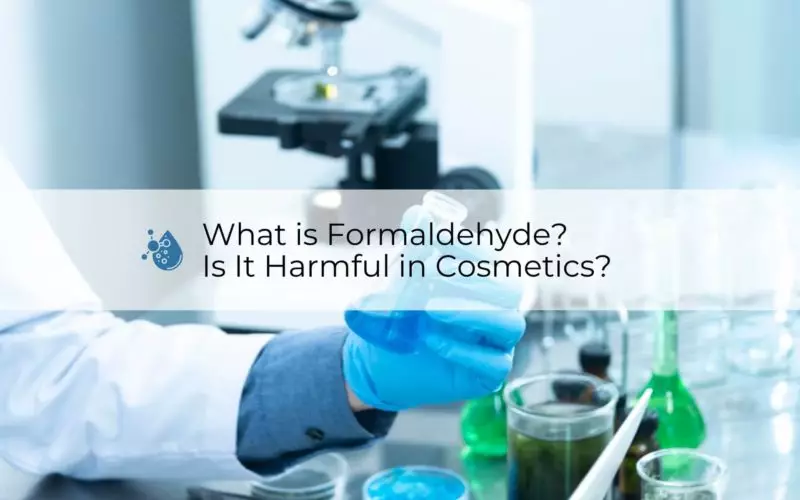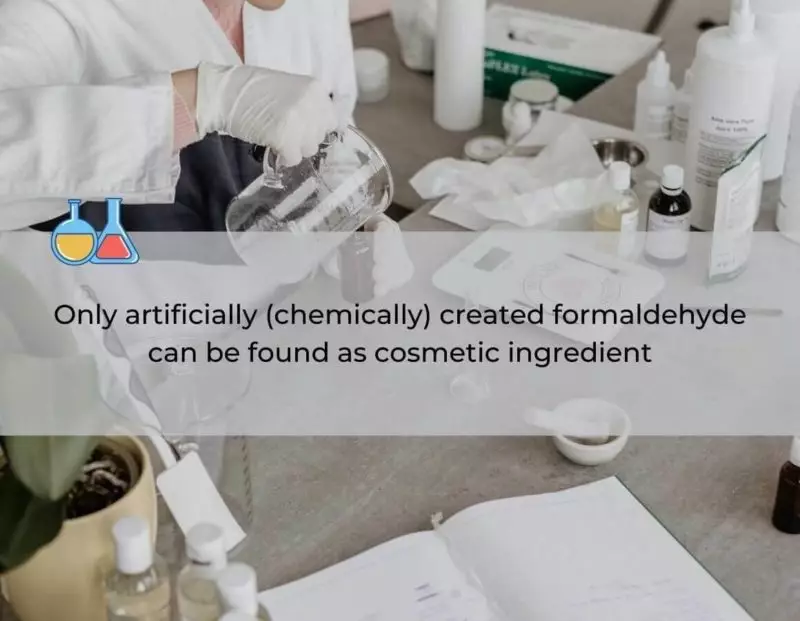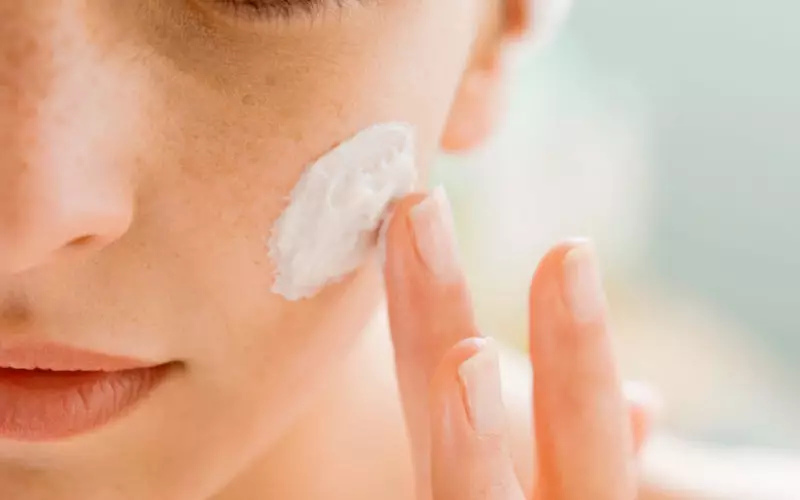
Apart from sulfates and alcohols, the formaldehyde is another ingredient which is questioned by the public. They have the fame of harmful chemicals, which should be avoided by any means. But why is that? What exactly is the formaldehyde?
If you are curious about knowing the answers to those questions, keep reading!
What is formaldehyde?
Formaldehyde is transparent, strong-smelling chemical compound, consisting of oxygen, hydrogen, and carbon.
This compound is both naturally and artificially produced. In nature, the body cells release formaldehyde naturally, as part of their metabolism (by microorganisms, plants, animals, and humans).
However, this formaldehyde is not extracted, nor used for the production of any product.
Only artificially (chemically) created formaldehyde can be found as a cosmetic ingredient.
Sometimes the combination of two other ingredients causes formaldehyde to be present in a specific product. They are mainly used as preservatives and anti-bacterial agents and others.

Is formaldehyde in cosmetic products harmful?
Short answer is: yes. Formaldehyde is toxic and may have bad effect on your health.
If we think about it, it is very convenient that the cosmetic products we buy, don’t go off fast after we open them. This saves us money and a few trips to the drugstore or the pharmacy.
But on what price? What is formaldehyde’s effect on our health?
Contact dermatitis
Many studies show that formaldehyde and its releasing ingredients are one of the major and most popular allergens, which leads to contact dermatitis.
Every person is exposed to those chemical compounds, not only through cosmetic and personal care products but also through clothing and other textile materials.
Because it is challenging to avoid contact with formaldehyde molecules, contact dermatitis is often chronic. It is very difficult to cure, as only specific symptoms can be relieved.
Keep in mind that some people are more sensitive to formaldehyde than others. Thus the symptoms of contact dermatitis may differ in their strength.
Some people may have no reaction to formaldehyde exposure.
If you suspect you have a formaldehyde allergy, it’s better to get tested so you can avoid the symptoms of a bad reaction. If you are sensitive, the symptoms include itchy and burning eyes, rashes, headaches, and tiredness.
Allergy
Some people are extremely reactive and sensitive to formaldehyde exposure.
As tiny amounts of it are naturally found in the environment, those people may suffer from chronic allergic reactions with the symptoms of pollen allergy (and not dermatitis symptoms).
Cancer
The most severe and dangerous health risk, which formaldehyde carries, is the risk of developing cancer.
Of course, only long term exposure to high formaldehyde levels can cause the formation of carcinogenic cells.
As those chemical compounds are penetrating through the skin, in the blood flow, the risk of developing any kind of cancer (not only skin cancer) is increasing.
It is known that people who are formaldehyde reactive bear a higher risk of developing cancer caused by the ingredient.

How can products with formaldehyde harm you?
- Contact dermatitis symptoms include chronic rash, flaky skin, itchiness, redness, blisters, burning sensation, over-sensitive, tender, and painful skin.
To cure the contact dermatitis, and not only to mask the symptoms, you should not have contact with any formaldehyde or formaldehyde-releasing ingredients. - Very sensitive people may experience allergy symptoms, such as watery, sometimes burning eyes, running nose, dry throat, coughing, etc.
As already mentioned, the symptoms are identical to those of pollen allergy, but they can be less or more pronounced, depending on the individual. - Developing malignant tumors, nausea, fatigue, and other cancer-related symptoms.








